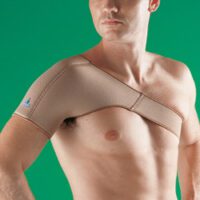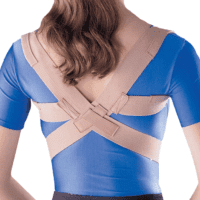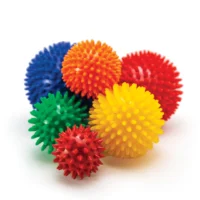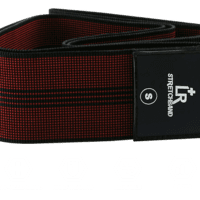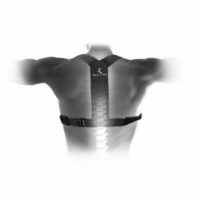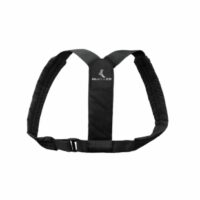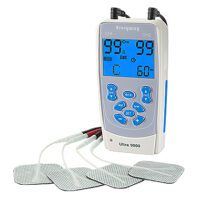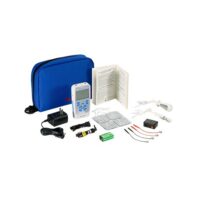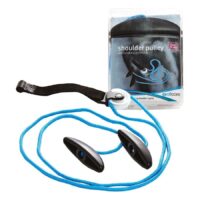Rotator Cuff Tear
Article by John Miller

Rotator Cuff Tears: A Guide to Diagnosis and Treatment
What is a Rotator Cuff Tear?
A rotator cuff tear involves the tearing of the tendons in your shoulder’s rotator cuff. This injury can happen in two ways – through sudden trauma, like a fall or lifting a heavy object, or from repeated microtrauma over time.
Symptoms of a Rotator Cuff Tear
The severity of a rotator cuff tear ranges from partial to full-thickness tears, impacting your shoulder function and strength. Mild cases may present with slight pain and clicking during arm movement, whereas severe tears can lead to intense pain and a significant loss of mobility.
Understanding the Rotator Cuff
Your shoulder’s rotator cuff comprises four small muscles – subscapularis, supraspinatus, infraspinatus, and teres minor. These muscles work together to stabilize and move your shoulder joint.
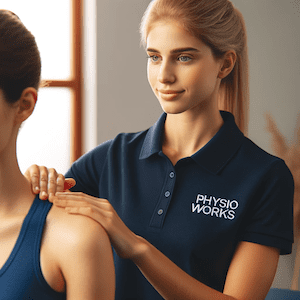
Diagnosis and Treatment
Physiotherapists and sports doctors diagnose rotator cuff tears through clinical assessments, ultrasound scans, and sometimes MRIs. Initial treatment typically involves physiotherapy, focusing on reducing pain and restoring function. For more severe cases, corticosteroid injections or surgery may be necessary.
The Importance of Early Treatment
Prompt treatment for a rotator cuff tear is critical. Delaying intervention can lead to further complications, making recovery more challenging.
The Pivotal Role of Physiotherapy in Treating Rotator Cuff Tears
Physiotherapy is central to the management and recovery of rotator cuff tears. It offers a non-invasive, tailored approach to each patient’s specific condition, focusing on alleviating pain, restoring function, and preventing further injuries.
Pain Management
One of the primary goals of physiotherapy in the early stages of a rotator cuff tear is pain management. Physiotherapists use various techniques such as cold and heat therapy, electrical stimulation, dry needling, acupuncture, kinesiology taping and shoulder massage to reduce pain and swelling in the affected area.
Restoring Range of Motion and Strength
Physiotherapy gradually helps in restoring the full range of motion of the shoulder joint. This is achieved through specific exercises designed to improve flexibility, strength, and endurance of the shoulder muscles, especially the rotator cuff muscles. These exercises are critical in preventing stiffness and ensuring the shoulder regains its full functional capacity.
Improving Posture and Muscle Balance
Poor posture and muscle imbalances can contribute to rotator cuff tears. Physiotherapists assess and correct these issues through targeted exercises and education on proper posture. This not only aids in recovery but also helps in preventing future injuries.
When Surgery is Needed
In cases where physiotherapy and conservative management don’t lead to recovery, rotator cuff repair surgery might be considered. This procedure involves reattaching the torn tendon to the bone. Post-surgery, physiotherapy is essential for regaining shoulder function.
Rehabilitation Post-Surgery
For those who undergo surgery for severe rotator cuff tears, physiotherapy is crucial post-operatively. It involves carefully structured rehabilitation programs to regain shoulder strength and mobility, ensuring a safe and effective return to daily activities or sports.
Related article: Post-Operative Shoulder Physiotherapy
Preventing Future Injuries
A significant aspect of physiotherapy is educating patients on how to avoid future injuries. This includes guidance on ergonomic adjustments, proper lifting techniques, and exercises that patients can incorporate into their daily routines to maintain shoulder health.
Tailored Treatment Plans
Physiotherapists develop personalised treatment plans based on the severity of the tear, the patient’s lifestyle, and their activity levels. This individualized approach ensures that patients receive the most effective treatment for their specific needs.
Long-Term Management
For chronic rotator cuff issues, physiotherapy offers strategies for long-term management of the condition. This includes ongoing exercises and lifestyle advice to maintain shoulder health and prevent exacerbation of symptoms.
Conclusion
In conclusion, physiotherapy plays a multifaceted and crucial role in the treatment of rotator cuff tears. It not only addresses the immediate symptoms but also focuses on the long-term health and functionality of the shoulder. This comprehensive approach ensures patients can return to their daily activities with improved strength and reduced risk of re-injury.
What to Do?
If you suspect a rotator cuff tear, it’s vital to seek professional advice from your physiotherapist or doctor. Early diagnosis and treatment can significantly improve your recovery outcomes.
For more information, explore these related articles:
Shoulder Pain Causes
Common Injuries & Conditions
Understanding the common shoulder pain causes is crucial, as this discomfort can stem from various issues like rotator cuff injuries, arthritis, and frozen shoulder. Our guide offers a comprehensive exploration of these causes, providing insights into both acute and chronic conditions. It aims to equip you with knowledge and strategies for effective treatment and recovery, catering to those grappling with recent injuries or long-term pain. This resource is your go-to for navigating the complexities of shoulder pain and its management.


Rotator Cuff
- Rotator Cuff Injury: A common condition causing shoulder pain, often due to repetitive overhead activities.
- Rotator Cuff Tendinopathy: Inflammation or damage to the rotator cuff tendons, leading to pain and reduced mobility.
- Rotator Cuff Calcific Tendinopathy: Characterised by calcium deposits in the rotator cuff tendons, causing intense pain.
- Rotator Cuff Tear: Involves a tear in the rotator cuff muscles, often resulting from injury or wear over time.
- Bicep Tendinopathy: Affects the bicep tendon, leading to pain in the front of the shoulder.
Shoulder Impingement Syndrome
- Shoulder Impingement: A condition where shoulder tendons are pinched during arm movements, causing pain and limited mobility.
- Shoulder Bursitis: Inflammation of the bursa, a small fluid-filled sac in the shoulder, causing pain and discomfort.
- Swimmer’s Shoulder: An overuse injury common in swimmers, causing shoulder pain and impingement symptoms.
Shoulder Stiffness
- Adhesive Capsulitis / Frozen Shoulder: A condition where the shoulder becomes stiff and painful, often developing gradually without a specific cause.
Shoulder Instability
- Shoulder Dislocation: Occurs when the shoulder joint is forced out of position, causing pain and instability.
- Functional Shoulder Instability: Chronic instability in the shoulder, often leading to recurrent subluxations, dislocations and pain.
Acromioclavicular Joint
- AC Joint Injury: Involves damage to the acromioclavicular joint, common in athletes and after falls.
Bone Conditions
- Shoulder Arthritis: Degenerative joint disease affecting the shoulder, causing pain and stiffness.
- Broken Shoulder / Fractured Humerus: A break in the shoulder bone, often resulting from trauma or falls.
- Stress Fracture: A small crack in the bone, typically caused by overuse and repetitive activities.
Post-Operative Physiotherapy
Post-Operative Shoulder Rehabilitation: Essential for recovery, involving tailored exercises and therapies to regain strength and mobility after shoulder surgery.
- Subacromial Decompression: A surgical procedure to alleviate shoulder impingement symptoms.
- Shoulder Arthroscopy: Minimally invasive surgery for various shoulder conditions.
- Acromioplasty: Surgery to reshape the acromion and relieve impingement.
- Rotator Cuff Repair: Surgical repair of a torn rotator cuff.
- SLAP Repair: Surgery to fix a specific type of labrum tear in the shoulder.
- Biceps Tenodesis: Surgical procedure to reattach the biceps tendon.
- Biceps Tenotomy: Involves cutting the biceps tendon to relieve pain.
- Total Shoulder Replacement: Replacement of the shoulder joint with artificial components.
Muscle Conditions
- Muscle Strain: A tear or stretch in a muscle, often causing pain and limited movement.
- DOMS – Delayed Onset Muscle Soreness: Muscle pain and stiffness that occurs hours after unfamiliar or strenuous exercise.
Neck Arm Syndromes
Referred Pain: Pain in the shoulder that originates from another area of the body, such as the neck or spine.
- Neck Arm Pain: Pain that originates in the neck and travels down to the arm and shoulder.
- Cervical Radiculopathy: Occurs when a nerve in the neck is compressed or irritated, leading to shoulder pain.
- Thoracic Outlet Syndrome: A condition where nerves or blood vessels between the collarbone and first rib are compressed, causing pain in the shoulder area.
Systemic Conditions
- Fibromyalgia: A chronic condition characterised by widespread musculoskeletal pain, including in the shoulder.
- Rheumatoid Arthritis: An autoimmune disorder that can cause joint pain and damage throughout the body, including the shoulders.
Shoulder Products & FAQs
Explore our range of shoulder products and find answers to frequently asked questions about shoulder pain and treatment options.
Shoulder Pain FAQs
Your Comprehensive Guide to Understanding and Managing Shoulder Injuries
Welcome to the "Shoulder Pain FAQs" page, your go-to resource for understanding various aspects of shoulder pain, injuries, and how to manage them effectively. The shoulder is a complex joint that allows for a wide range of movements, but it is also susceptible to various injuries and conditions that can cause discomfort and limitations in daily activities.
In this comprehensive guide, we will explore the most common shoulder injuries, their causes, and how to identify and treat them. We'll also address frequently asked questions about specific shoulder conditions, providing you with valuable insights into your shoulder health.


When Should You Worry About Shoulder Pain?
Shoulder pain can be caused by numerous factors, ranging from minor strains to more severe injuries. Knowing when to seek medical attention is crucial to prevent further damage and facilitate timely recovery.
Common Shoulder Injuries
We'll swing into the most prevalent shoulder injuries, shedding light on their causes, symptoms, and appropriate treatment options.
More info: Common Shoulder Injuries
What Causes Shoulder Pain?
Understanding the root causes of shoulder pain is fundamental to addressing the issue effectively. We'll explore the various factors that can lead to shoulder discomfort and how to mitigate them.
More info: What Causes Shoulder Pain?
What is Your Scapulohumeral Rhythm?
The scapulohumeral rhythm plays a vital role in shoulder function and movement. We'll explain what it is and its significance in maintaining a healthy shoulder.
More info: What is Your Scapulohumeral Rhythm?
Rotator Cuff: An In-Depth Analysis
The rotator cuff is a critical group of muscles and tendons in the shoulder. We'll dive into its anatomy, functions, and common problems associated with it.
More info: Rotator Cuff: An In-Depth Analysis
How Can You Tell If You Have Torn Your Rotator Cuff?
Identifying a torn rotator cuff can be challenging, but we'll provide you with essential signs to look out for and when to seek professional evaluation.
More info: How Can You Tell If You Have Torn Your Rotator Cuff?
Can You Diagnose A Torn Rotator Cuff Without An MRI?
Find out about diagnostic methods for a torn rotator cuff, including whether an MRI is always necessary for accurate diagnosis.
More info: Can You Diagnose A Torn Rotator Cuff Without An MRI?
Can You Lift Your Arm With A Rotator Cuff Tear?
Discover the limitations and challenges you may face if you have a torn rotator cuff and how to manage arm movement during the healing process.
More info: Can You Lift Your Arm With A Rotator Cuff Tear?
Will Your Shoulder Blade Hurt With A Torn Rotator Cuff?
Learn about the possible relationship between a torn rotator cuff and shoulder blade pain, and what it indicates about your shoulder health.
More info: Will Your Shoulder Blade Hurt With A Torn Rotator Cuff?
Will A Cortisone Injection Help A Torn Rotator Cuff?
Cortisone injections are sometimes used for shoulder pain, but their effectiveness in treating a torn rotator cuff is a point of interest we'll explore.
More info: Will A Cortisone Injection Help A Torn Rotator Cuff?
How Can You Make Your Rotator Cuff Heal Faster?
We'll provide practical tips and strategies to aid in the healing process of a torn rotator cuff and restore shoulder function more rapidly.
More info: How Can You Make Your Rotator Cuff Heal Faster?
Shoulder Bursitis: Understanding the Condition
What is shoulder bursitis, and how does it differ from other shoulder injuries? Get insights into this inflammatory condition and how to manage it.
More info: Shoulder Bursitis: Understanding the Condition
Shoulder Impingement: Causes and Solutions
Understand the concept of the shoulder impingement zone and the factors contributing to rotator cuff impingement and bursitis.
More info: Shoulder Impingement: Causes and Solutions
Frozen Shoulder: Overcoming the Stiffness
Discover how to unfreeze a frozen shoulder and regain a full range of motion through effective therapeutic approaches.
More info: Frozen Shoulder: Overcoming the Stiffness
Shoulder Dislocation/Instability: Seeking Stability
Explore the causes of shoulder dislocation and instability, and the fastest ways to promote healing and prevent future occurrences.
More info: Shoulder Dislocation/Instability: Seeking Stability
Can You Fix Shoulder Instability?
Find out about treatment options to address shoulder instability and regain stability in the joint.
More info: Can You Fix Shoulder Instability?
AC Joint: Identifying and Managing Injuries
Learn how to recognise an injured AC joint and what steps to take for proper care and recovery.
More info: AC Joint: Identifying and Managing Injuries
Swimmers Shoulder: Causes and Remedies
If you're a swimmer or engage in repetitive overhead activities, understanding the causes of swimmer's shoulder and how to prevent it is essential.
More info: Swimmers Shoulder: Causes and Remedies
We hope this comprehensive guide will prove invaluable in your journey to understand and manage shoulder pain and injuries. However, it's essential to consult a healthcare professional for personalised advice and treatment based on your specific condition. Let's dive into the world of shoulder health together!







